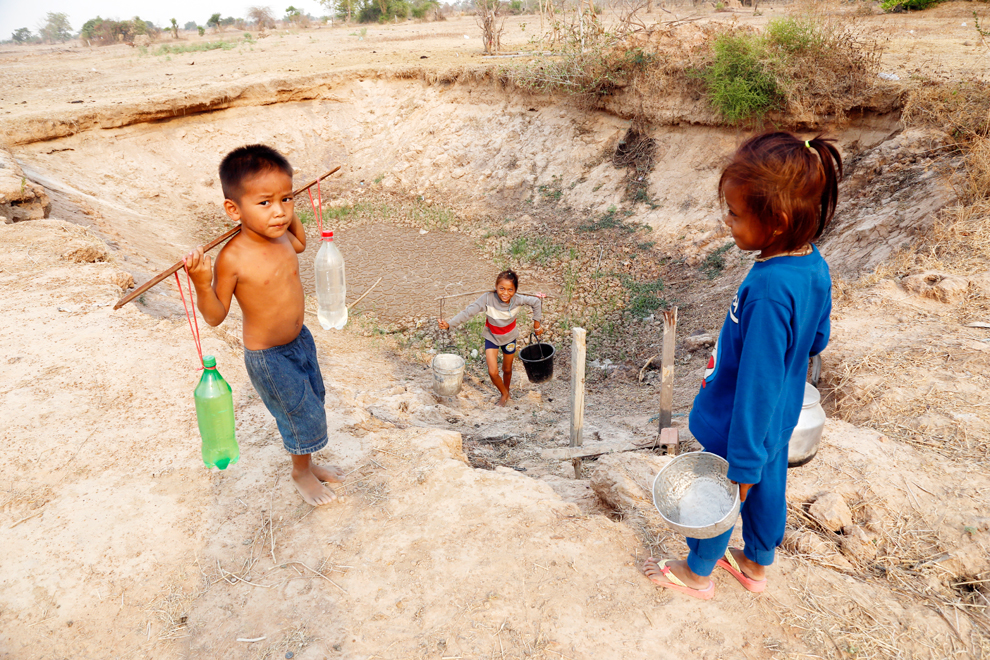
Children carry empty containers as they leave a dried-up pond in Battambang province's Kors Kralor district. The Ministry of Water Resources and Meteorology said this year's dry and early rainy season will be more favourable than in previous years due to the influence of El Nino. Heng Chivoan
The Ministry of Water Resources and Meteorology has issued a weather forecast for this year, which shows that the dry and early rainy season will be more favourable than in previous years due to the influence of El Nino/Southern Oscillation (Enso).
On Monday, its minister Lim Kean Hor issued a weather forecast for the dry season and the early rainy season. He said Enso will play a particularly important role.
Enso refers to variations in winds and sea surface temperatures affecting the climate of much of the tropics and subtropics. The warming phase of the sea temperature is known as El Nino and the cooling phase as La Nina. Enso fluctuates between three phases – Neutral, La Nina or El Nino.
This year, Kean Hor said, the influence of Enso’s neutral phase on Cambodia will reach 60 per cent.
“Checks on the influence of the three phenomena [Neutral, La Nina and El Nino] show that the weather situations for the dry season and early rainy season this year will be better than the dry season and early rainy season of last year,” the notice said.
Despite the good news, the minister called on citizens in remote areas far from water sources to use water economically, explaining that rain in April and May will be scarce and water may be in short supply.
During this year’s dry season, temperatures will rise above the annual average, the notice said. Rainfall will be below the average of the last several years.

The Ministry of Water Resources and Meteorology has said El Nino will bring more favourable weather this year. Heng Chivoan
The forecast said the maximum temperature this month will be between 30C and 32C in mountainous and highland provinces.
In central lowland areas, the maximum temperature will reach 33-35C. It will hit 31-33C in coastal areas.
From February, the heat will pick up, reaching its highest point in April. In the meantime, early rains, including rainstorms and lightning strikes, are likely to occur.
The rainy season this year will start during the second week of May, according to the notice, bringing an average or below-average amount of rain that can, nonetheless, be considered normal.
Following the notice, Banteay Meanchey provincial department head Seang Vanseth called on farmers to exercise caution during the dry season, as early rains could create the right conditions for disease-carrying mosquitoes to thrive. The problem could be particularly severe in March and April, he said.
“In general, in those two months, some water sources including lakes, rivers, creeks and wells, will dry up. The increasing heat will create the right conditions for other diseases that affect humans. Farmers must be aware of these dangers and conserve water,” he said.












